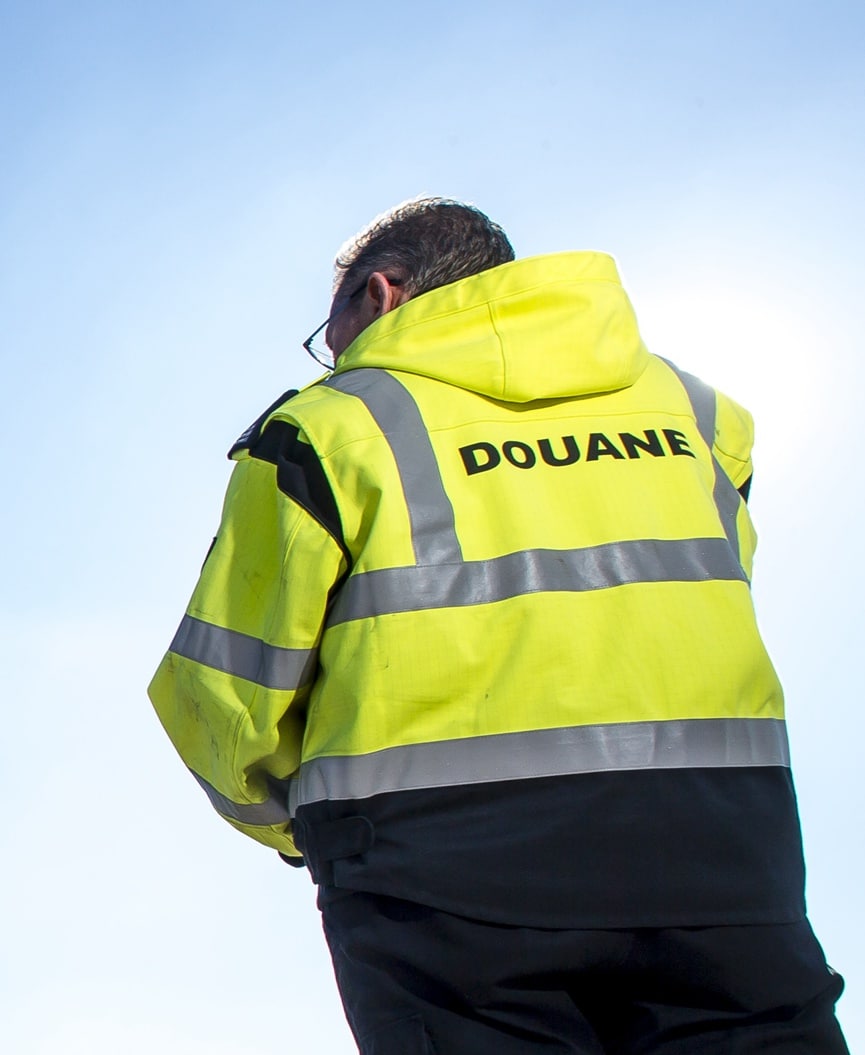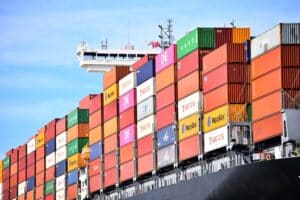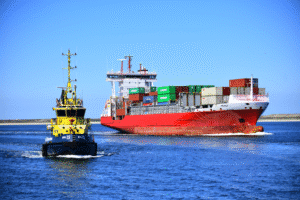“Thanks to the Secure Chain, we have not witnessed any incidents of smuggling or theft involving PIN code fraud since early 2025.” For Peter van Buijtenen, this is one of the most notable positive outcomes of the new operational approach in the port for releasing and collecting containers without the use of a PIN code. Following the successful rollout in the deepsea sector, the Regional Director of Customs for the port of Rotterdam would therefore like the shortsea sector to also adopt the Secure Chain. “This would provide Rotterdam with a unified, secure, and reliable operational approach.” Customs itself will soon initiate a study into the feasibility of scanning as many containers as possible immediately upon discharge from the deepsea vessel.
Van Buijtenen commends the cooperation within the port of Rotterdam. The approach aimed at combating criminal infiltration has further strengthened the relationship between authorities and the business community. “Together, we can accomplish so much more. The Secure Chain is an excellent example of this, as are the more than 300 smart cameras throughout the port area – the virtual fence – which are used collaboratively by the Seaport Police, Harbor Master and Customs.”
Together, we can accomplish so much more
The complete elimination of PIN code fraud in the first four months of 2025, along with a sharp decline in unauthorised cargo removals, illustrates the success of this approach. The latter is also partly attributable to the current verification of operating carriers at terminal gates. Individuals attempting to collect cargo illegally can no longer access the site by simply hitching a ride with unauthorised drivers. “All these measures combined make smuggling via the port of Rotterdam increasingly more difficult.”
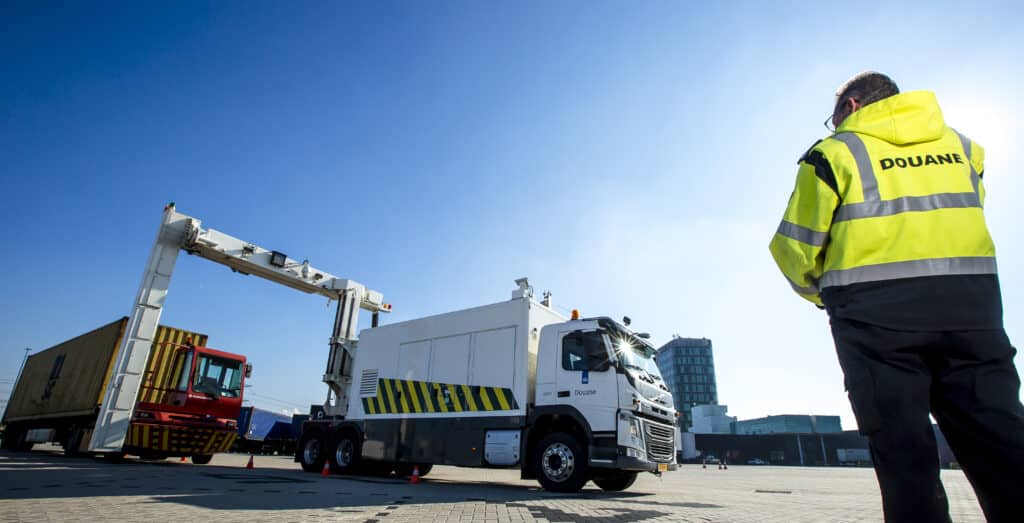
Drug smuggling a priority
Some 850 customs officers operate in Rotterdam. “The port is an external border of Europe. As Customs, we ensure that the goods that enter and leave here are subject to inspection ,” explains Van Buijtenen. This includes fiscal matters – “taxes must be paid” – but increasingly also non-fiscal matters. “Think of the enforcement of sanctions against Russia, for example, but also the efforts to combat drug smuggling. Partially due to the social impact, drug smuggling is one of our top three priorities. We have dedicated teams for each potential smuggling method.”
Call to action for shortsea
Formally, Customs does not have a relationship with the Secure Chain. Van Buijtenen: “We cannot legally enforce participation. We are definitely enthusiastic though and we actively encourage companies to join. The Secure Chain significantly complicates the smuggling of narcotics.” After the successful rollout in the deepsea sector, Customs would therefore like the shortsea sector to participate as well.
The Secure Chain significantly complicates the smuggling of narcotics
“This would provide Rotterdam with a unified, secure, and reliable operational approach.” The initial steps are already underway, notes the regional director. “Shortsea terminals and shipping lines may not yet feel the same urgency, but I believe that ultimately, concerns for employee safety will be a key motivator for their participation.”
Reduced notification period for scan inspections
Customs is also developing various own initiatives through the Resilient Port Terminals programme, which specifically targets the issue of illicit drug retrieval. One such initiative is the reduction of the notification period for scan inspections. “While a vessel is still en route to Rotterdam, we currently already specify the containers which we want to inspect. In accordance with agreements made with the business community, these containers are scanned within 36 hours after arrival in the port. However, this time window gives criminals the opportunity to retrieve hidden narcotics.” Not a desirable situation, but the modification of systems takes time. Van Buijtenen expects to significantly shorten the notification period by early 2026. “The exact timeframe still needs to be determined and we need to consult with the business community on this matter.” He believes that the logistical planning process must be taken into account as well. “But companies understand the necessity.”
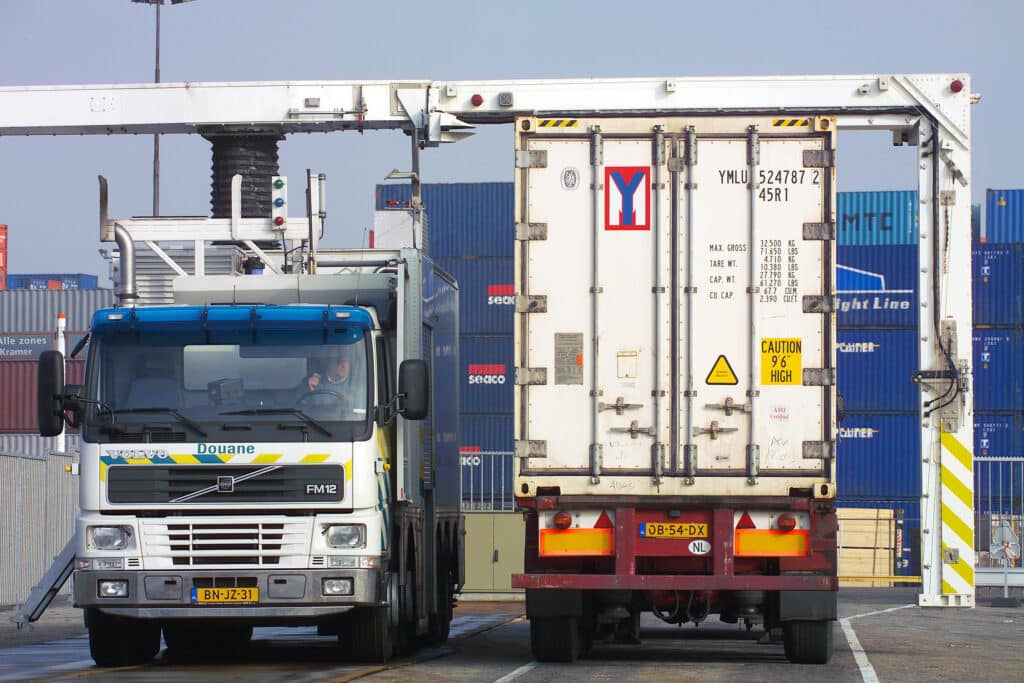
All containers immediately scanned
One thing Van Buijtenen would like to see is the scanning of containers immediately upon arrival at the port. Van Buijtenen: “This means an incoming container is not first moved from the ship to the stack but is immediately scanned. By means of a study, Customs wants to gain insight into the requirements for this. “Not just for the limited number of containers aboard each ship that we currently select for a scan inspection, but for all containers aboard scheduled services that present a risk. Or even further: 100% scanning of all containers that are unloaded in Rotterdam.” Artificial intelligence (AI) will play a key role in this. “If Customs can tell the business community that a container will be scanned and available for onward transport within three hours of unloading, I think they will be extremely pleased. It somewhat offsets the reduced notice period that we will be focusing on first. This will require further investigation though, as the implications will be substantial for all parties.”
Following the successful implementation in the deepsea sector, Customs would like to see the shortsea sector join as well
“Let us continue to work together on a resilient port that leaves no room for criminal infiltration,” concludes Van Buijtenen. “I call on all parties in Rotterdam to join the Secure Chain for this purpose. There is still much to be gained, particularly in the shortsea sector.”
